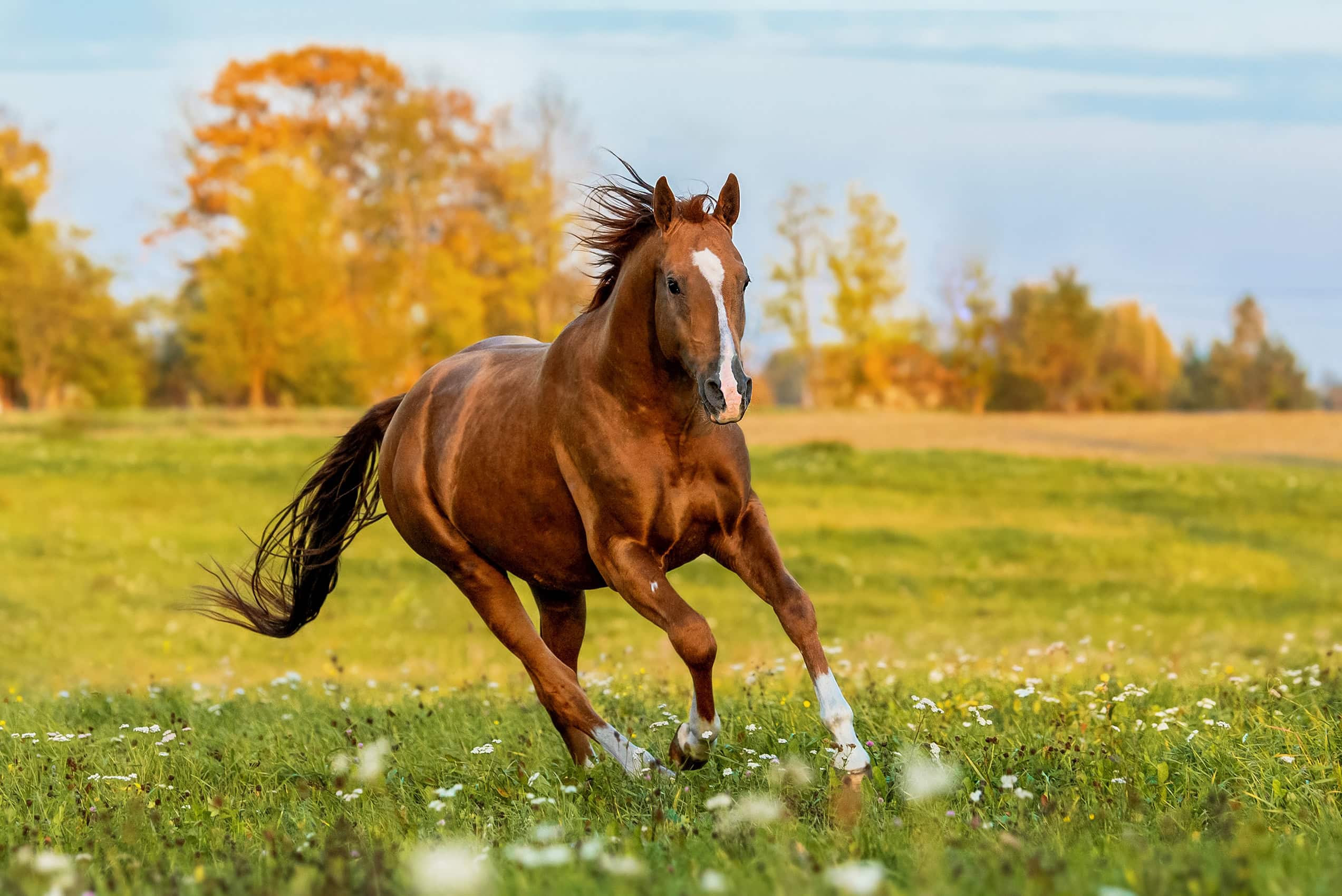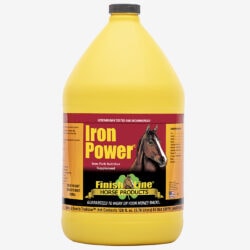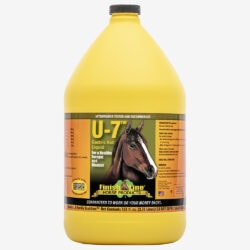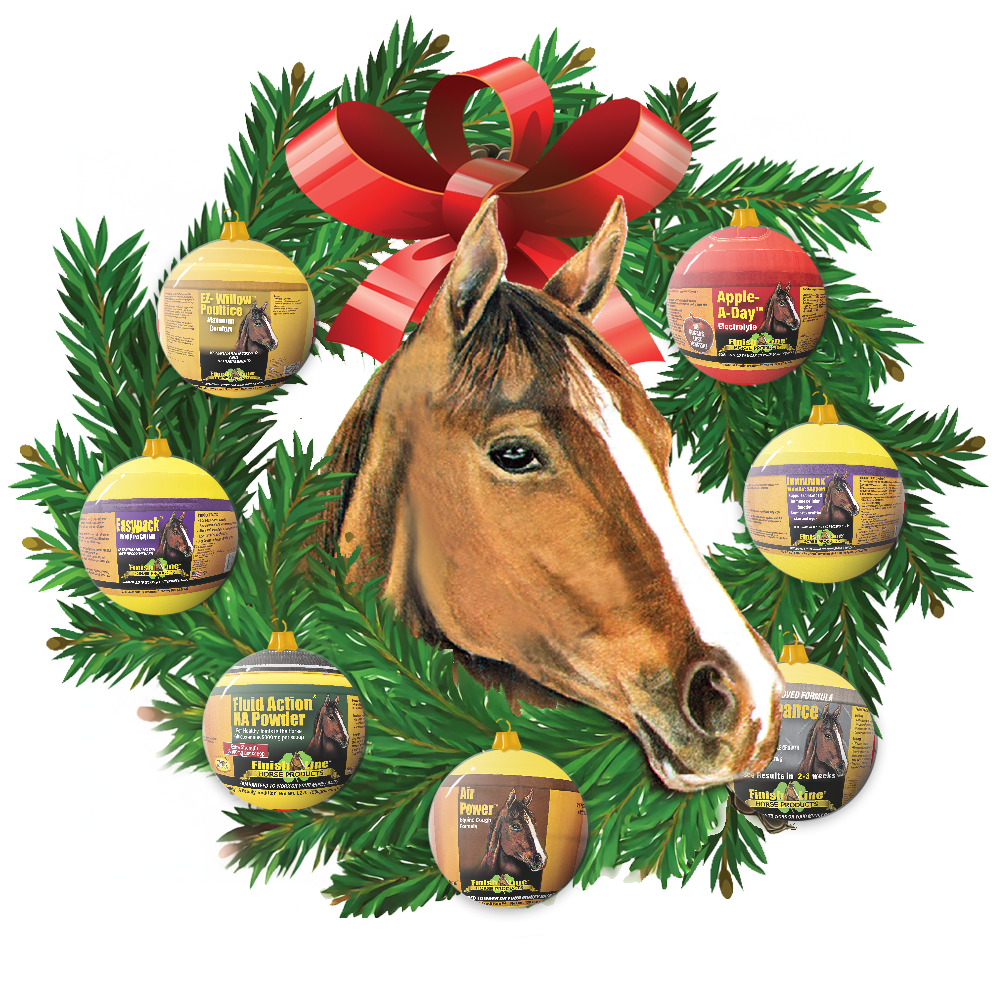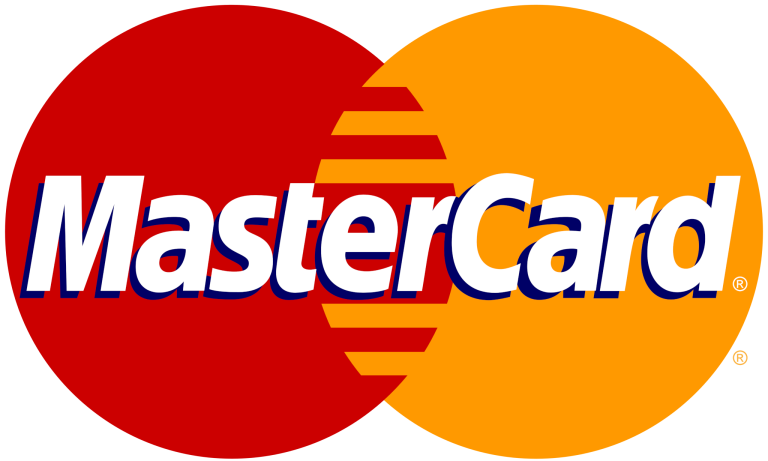By Anthony Howe, 5th Generation Horseman, CEO, Finish Line Horse Products
A healthy equine body is one where each of its systems is at peak performance, with all systems orchestrating in harmony. A foundational system in that mix is the vascular system, which helps deliver oxygen and fuel to muscles and organs via the bloodstream. Hemoglobin is key in this process by serving as the protein in red blood cells that is responsible for carrying oxygen to the tissues.
When our equine friends have optimal red blood cell counts and hemoglobin levels, they see an uptick in immunity, performance, and overall well-being. All are signs of a healthy vascular system.
Equine Anemia: Signs & Diagnosis
Low red blood cell counts, on the other hand, can lead to an overall decrease in your horse’s health. The condition is called anemia. Symptoms of anemia vary depending on the cause; however, general symptoms in your horse may include: fatigue, poor appetite, lower immunity, changes to hooves and coat, pale gums, and increased heart rate. Anemia can occur due to the loss, destruction, or lack of production of red blood cells (Marks, 2022).
Veterinarians can diagnose anemia through blood tests that measure both red blood cell counts and hemoglobin. The normal equine hemoglobin level is 11.8-15.9 g/dL. If your horse is suffering from anemia, or has levels on the lower end of the optimal range, then they may benefit from iron supplementation. Common challenges for horse owners like nutrition, parasites and digestive issues such as ulcers, can all have distinct effects on your horse’s blood counts.
For these instances, we created a simple guide to get your horse back to optimal levels.
A Simple Guide to Healthy Equine Blood Levels
Step 1: Set up a deworming schedule. Rotate de-wormers every two months and be consistent in scheduling these treatments throughout the year.
Step 2: Check their gut health. Make sure you address gastrointestinal issues, such as ulcers which can lead to anemia. Most horses in training are susceptible to ulcer formation and require regular maintenance to prevent and treat this condition. Remember to always consult your veterinarian for diagnosis and treatment of gastric ulcers.
Step 3: Ensure nutritional support. Fortify your horse’s diet with iron and other minerals and nutrients, like B-complex vitamins. A deficiency in iron can cause a condition called Iron Deficiency Anemia.
Supplementing your horse’s diet to ensure they are receiving all of the nutrients necessary for red blood cell health may be beneficial. Supplements that contain nutrients such as Iron, Copper, Cobalt, and B vitamins may help support healthy blood counts in your horse.
No matter what the cause of the anemia may be, it’s important to address the condition and treat it accordingly. If you are concerned your horse has anemia or is exhibiting symptoms, always refer to your veterinarian for evaluation and treatment.
References
Hematology (Advia 2120). (2023, October 10). Retrieved from Cornell University College of Veterinary Medicine: https://www.vet.cornell.edu/animal-health-diagnostic-center/laboratories/clinical-pathology/reference-intervals/hematology
Marks, S. L. (2022, October). Anemia in Horses. Retrieved from Merck Veterinary manual: https://www.merckvetmanual.com/horse-owners/blood-disorders-of-horses/anemia-in-horses





